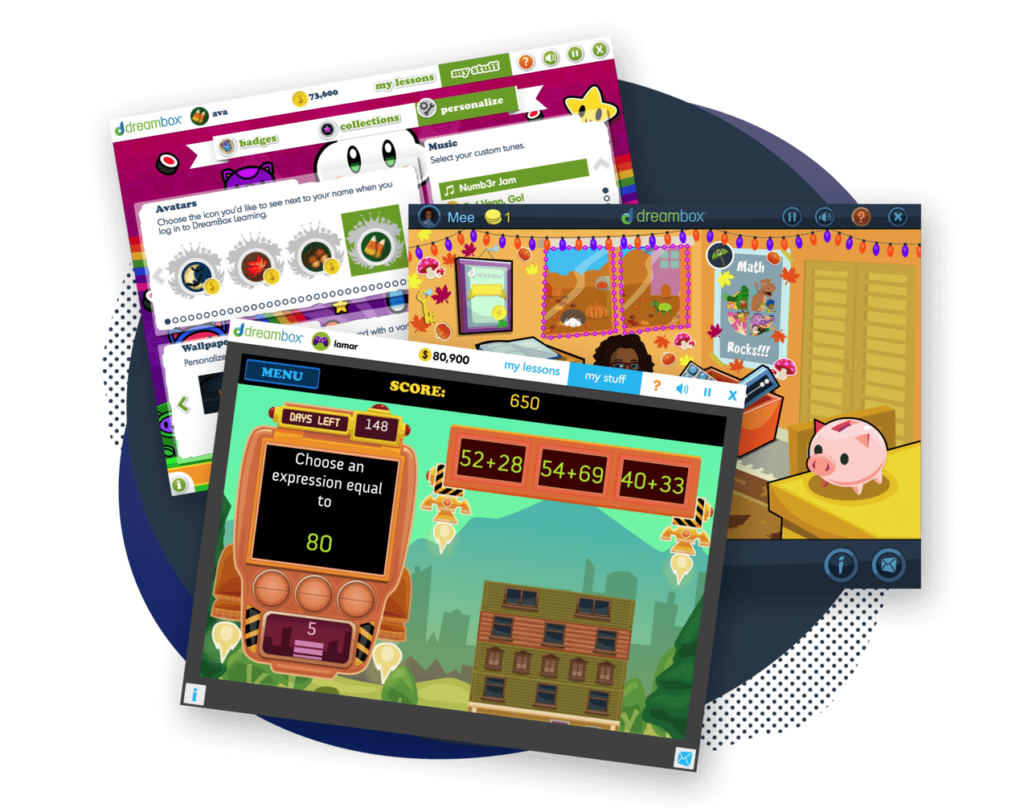First Day of 3rd Grade
Make the first day of 3rd grade a breeze for both you and your child with these easy-to-follow tips and techniques.

Author
Tess Loucka
Published:
September 2025
Key takeaways
- • You can help your child feel more confident by talking through their anxieties, putting together outfits they feel comfortable in, and allowing them to bring a comfort item to school.
- • Morning routines can get hectic without set goals and written routines.
- • Build up your child’s independence by giving them tasks to do on their own at home.
Picture this: It’s the morning of the first day of 3rd grade, and your child is up and ready to go on time. At drop-off, you say a quick goodbye and watch your child enter the school building with a smile on their face, ready for the new school year to begin.
Not only that, but you feel completely at ease, too!
No, that doesn’t have to just be a fantasy. With the right approach, you can make a calm and happy first day of 3rd grade your reality!
In this article, we’ll talk about techniques for physically, mentally, and emotionally preparing yourself and your child for their first day back at school.
What to Expect on the First Day of 3rd Grade
The Schedule
On the first day of 3rd grade, the goal for teachers is to help their students get to know each other and feel comfortable navigating the classroom.
Therefore, much of the first day will likely be spent doing fun icebreakers, playing games, or doing simple activities meant to get the students warmed up and ready for the year ahead.
Student Expectations
In 3rd grade, students will likely be expected to have classroom responsibilities. These can include cleaning off the chalkboard or whiteboard, helping the teacher distribute handouts to the class, feeding the class pet, or other simple tasks.
Prepare your child for classroom responsibilities by giving them responsibilities at home! Children at this age should be somewhat independent and be able to at least get dressed and brush their teeth on their own.
If your child is not used to doing things themselves, the summer leading up to 3rd grade is a great time to start practicing.
Besides specific responsibilities in the classroom, students are expected to be good listeners, follow instructions, be polite, and have basic manners. The attitude of a child in the classroom is just as important as their knowledge of the learning materials.
The Emotional Experience
Although children will have already had at least two or three first days of school before this, the first day of 3rd grade can still be an emotional challenge for some kids.
Saying goodbye to a parent or guardian after spending all summer together can be a cause for waterworks. And having to spend extended periods of time with people they do not know can create discomfort.
To make things easier on your child, practice quick and easy goodbyes before the first day.
Additionally, for children with separation or social anxiety, allow them to bring a comfort item to school. This may be a stuffed animal, a special sweater, a book, or another small item that reminds them of home.
Just make sure the comfort item won’t be distracting to them or their classmates!
Table of contents
Get 3rd grade math practice with DreamBox!
Turn math into playtime with DreamBox Math
DREAMBOX MATH
Get started for FREE today!

How Parents Can Prepare Their Child for Success
Everyone knows that confidence is the key to success. That’s true whether you’re going to a business meeting in an office or simply going to your first day of a new school year.
The first day back will set the tone for the rest of the school year. So, approaching it with confidence is essential.
But keep in mind that confidence is created over time, and can be lost over time, too.
Let’s talk about ways you can maintain your child’s confidence throughout the school year.
Morning Routine Tips
The key to a smooth morning is setting expectations. Without specific expectations, mornings can get out of control fast!
Set Clear Goals
Before the school year starts, talk to your child about the morning routine. Write down exactly what must be done each morning and tape it to the wall somewhere both you and they can see it.
Once you’ve written down your morning routine, talk about who’s going to do what.
A 3rd grader should be able to plan their own outfit, get dressed, brush their teeth and hair, and pack their backpack on their own. Ideally, they can be doing all that while you prepare their breakfast.
If your child cannot get themselves ready yet, continue to help them. Gradually give them less support until they can do their morning tasks independently.
Go to Sleep Early
Children at this age need anywhere between 9 and 12 hours of sleep per night. Consider their wake-up time and set their bedtime accordingly.
Remember, a few disorganized, late mornings here and there is fine; just don’t let them become a habit!
Talk through your morning routine every night with your child until they have it memorized.
Talking About the Day Ahead
So, confidence is key, but how do we maintain it daily?
Talk Through Your Child’s Feelings
Children in the 3rd grade may feel all sorts of things, be it anxiety about making friends or a complete disinterest in learning. Whatever the case, hear them out. Listen to their concerns and find ways to work through them together.
Work on Social Skills
Give your child conversation starters to use with their classmates, set up playdates with other children in their school, sign them up for afterschool programs, or take them to activities or events where they can interact with other kids.
Review Their Curriculum
If your child struggles to understand their 3rd-grade content, talk them through it. As the parent or guardian, you should be aware of what your child is learning in school.
Third graders learn various concepts in language arts, science, history, geography, and math. They are also expected to read at a certain level.
If possible, review classroom content with them after school, do homework together, or get them a tutor.
For more curriculum help or review, use a math app, workbook, or online program.
Demonstrate Positivity
To boost your child’s confidence, excitement, and motivation to learn, demonstrate those qualities yourself! A child’s attitude about something is directly related to their parents’ attitude about it.
If you’re excited about learning, they will be too.
Motivation to learn doesn’t just come from the classroom; it comes from life at home.
What to Pack and Bring
Kids get excited for the first day when they have new supplies to carry around and use.
But what exactly should your child bring to the first day of 3rd grade?
Most schools provide students and their families with school supplies lists. These lists almost always include:
- Pocket folders
- Composition notebooks – wide ruled
- 3 hole punched lined paper – wide ruled
- Scissors
- Glue sticks
- Highlighters
- Number two pencils
- Erasers
- Crayons
- Markers
- Colored pencils
- Hand sanitizer
And don’t forget the backpack!
Additionally, unless your child will eat school lunch every day, they’ll need a lunch box. Keep the lunch box small—otherwise it won’t fit in their backpack and is more likely to be lost.
And, if packing their lunch, make sure it’s healthy, filling, and includes all the major food groups. Don’t forget to send them to school with water and a healthy snack, too!
Lastly, if your child is anxious, send them to school with a comfort item.
Supporting Your Child After School
Many parents attack their kids with questions after school. Some kids may be happy to talk about their day immediately, but others may feel too tired.
If your child doesn’t enjoy talking about school right away, give them time to recuperate.
When they’re ready to talk, ask open-ended questions like, “What was the most interesting thing you learned today?” or “What did you do during recess?”
Whether or not you have a full conversation about their day in school, daily check-ins are important. Ask your child how they feel. Do they feel anxious? Shy? Demotivated? Embarrassed?
Negative feelings are common, and it’s important to talk about them sooner rather than later.
On the other hand, if your child accomplished something, like finishing a project, completing a book, or even answering a question in class, celebrate it! A win is a win.
Acting excited over the little things will motivate them to keep trying, leading to bigger wins down the road.
FAQs about the first day of 3rd grade
Keep your child’s school dress code in mind when planning their back-to-school outfit. Pick out an outfit that’s comfortable, suitable for school, and weather-appropriate with your child. Keep it proper, yet casual.
Work with your child on their social skills by giving them conversation starters, setting up playdates, and signing them up for afterschool and extracurricular activities. Teach them how to be kind, understanding, patient, and a team player.
It’s normal for children to feel nervous and shy in 3rd grade. To help your child feel more confident, talk through their concerns, help them make friends, and celebrate their accomplishments. A new outfit or backpack can also be a confidence booster.
Take at home math practice to the next level
Empowering parents and educators to make math practice more impactful. Plus, your kids will love it.


About the Author
Tess Loucka
Tess Loucka discovered her passion for writing in high school and has not stopped writing since. Combined with her love of numbers, she became a math and English tutor, focusing on middle- and high-school-level topics. Since graduating from Hunter College, her goal has been to use her writing to spread knowledge and the joy of learning to readers of all ages.